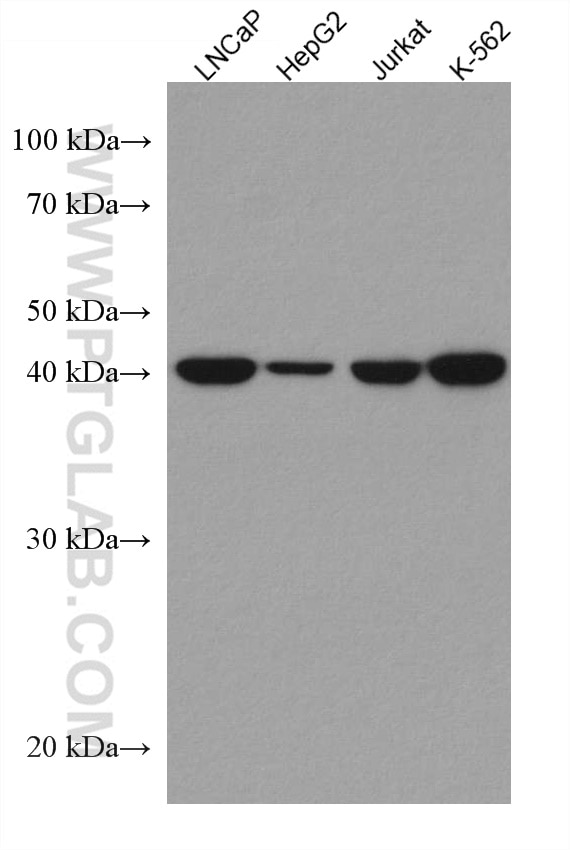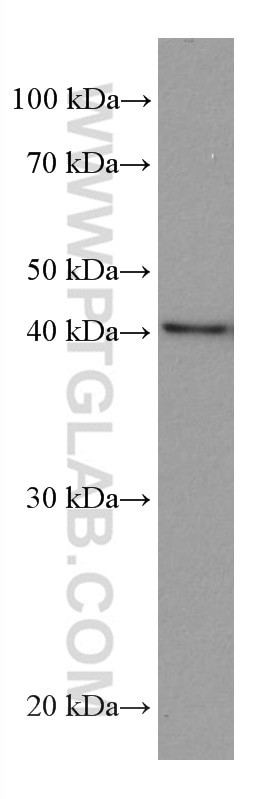Anticorps Monoclonal anti-MVK
MVK Monoclonal Antibody for WB, ELISA
Hôte / Isotype
Mouse / IgG2b
Réactivité testée
Humain
Applications
WB, ELISA
Conjugaison
Non conjugué
CloneNo.
2F1D3
N° de cat : 67820-1-Ig
Synonymes
Galerie de données de validation
Applications testées
| Résultats positifs en WB | cellules LNCaP, cellules HepG2, cellules Jurkat, cellules K-562, cellules U2OS |
Dilution recommandée
| Application | Dilution |
|---|---|
| Western Blot (WB) | WB : 1:5000-1:50000 |
| It is recommended that this reagent should be titrated in each testing system to obtain optimal results. | |
| Sample-dependent, check data in validation data gallery | |
Informations sur le produit
67820-1-Ig cible MVK dans les applications de WB, ELISA et montre une réactivité avec des échantillons Humain
| Réactivité | Humain |
| Hôte / Isotype | Mouse / IgG2b |
| Clonalité | Monoclonal |
| Type | Anticorps |
| Immunogène | MVK Protéine recombinante Ag28887 |
| Nom complet | mevalonate kinase |
| Masse moléculaire calculée | 396 aa, 42 kDa |
| Poids moléculaire observé | 42 kDa |
| Numéro d’acquisition GenBank | BC016140 |
| Symbole du gène | MVK |
| Identification du gène (NCBI) | 4598 |
| Conjugaison | Non conjugué |
| Forme | Liquide |
| Méthode de purification | Purification par protéine A |
| Tampon de stockage | PBS with 0.02% sodium azide and 50% glycerol |
| Conditions de stockage | Stocker à -20 ℃. L'aliquotage n'est pas nécessaire pour le stockage à -20oC Les 20ul contiennent 0,1% de BSA. |
Informations générales
MVK (Mevalonate kinase) is a 42 kDa cytoplasmic protein that belongs to the GHMP kinase family. Mevalonate kinase catalyzes the ATP-dependent phosphorylation of mevalonic acid to form mevalonate 5-phosphate. Defects in mevalonate kinase can cause mevalonic aciduria (MEVA). It is an accumulation of mevalonic acid which causes a variety of symptoms such as psychomotor retardation, dysmorphic features, cataracts, hepatosplenomegaly, lymphadenopathy, anemia, hypotonia, myopathy and ataxia.
Protocole
| Product Specific Protocols | |
|---|---|
| WB protocol for MVK antibody 67820-1-Ig | Download protocol |
| Standard Protocols | |
|---|---|
| Click here to view our Standard Protocols |



